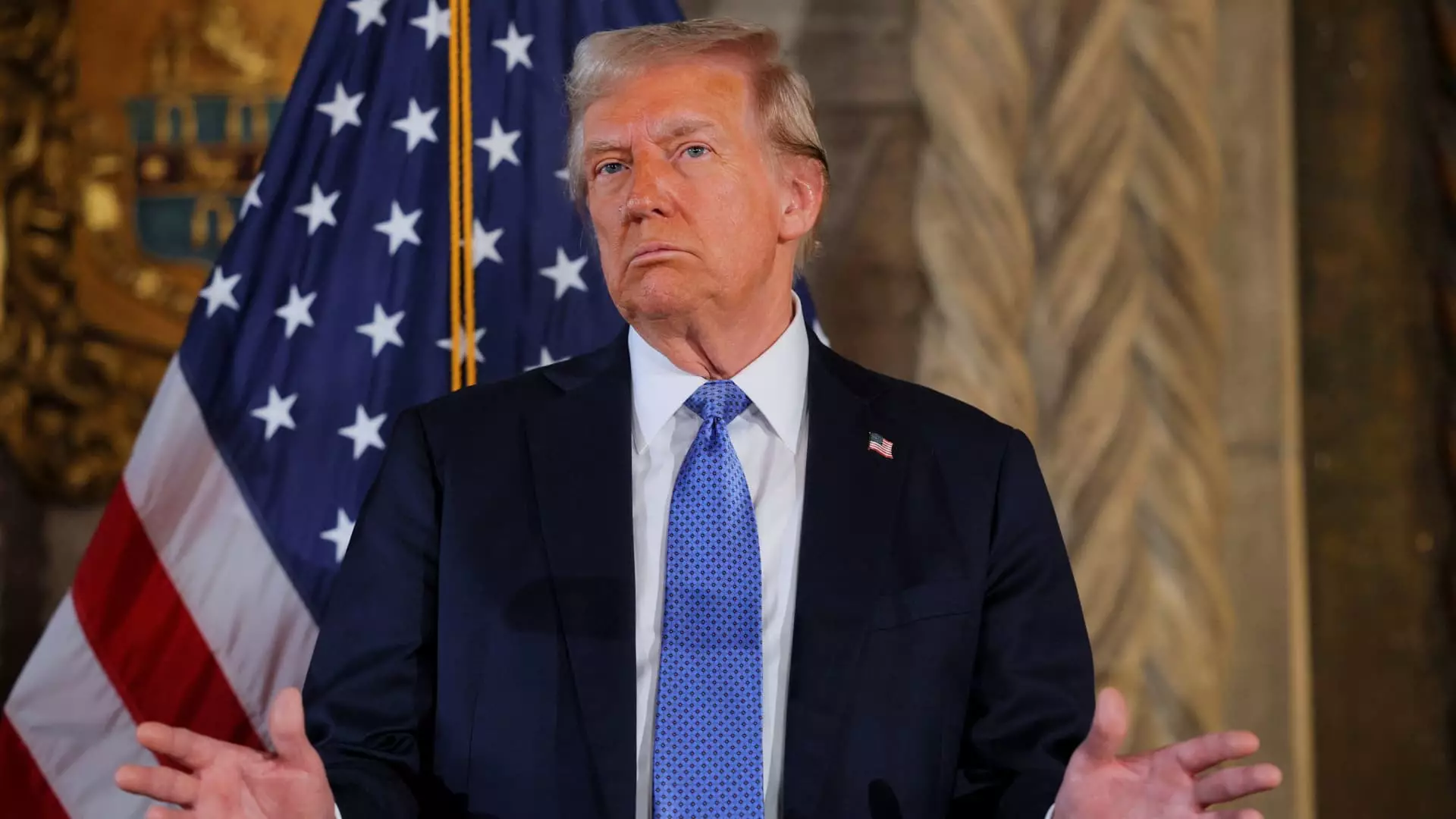The political landscape surrounding U.S.-European Union (EU) trade relations takes center stage with incoming President Donald Trump’s bold assertions regarding tariffs and energy purchases. The economic implications of these statements form a complex web of diplomatic negotiations, positioning not only the U.S. and EU alike but also weighing the potential repercussions on global markets. To dissect Trump’s claims effectively requires an exploration of the broader context, the reactions from EU officials, and the anticipated implications on transatlantic relations.
In a recent social media post, Trump emphasized the necessity for the EU to reduce its significant trade deficit with the U.S., estimated at $131.3 billion for 2022. He suggested that the path to balance this deficit lay in increasing purchases of American oil and gas, cleverly intertwining energy demand with tariff threats. This trove of leverage taps into the EU’s pressing need for energy diversification, especially in the wake of dependency on Russian energy supplies post-Ukraine invasion.
Such statements raise questions about the implications of tariffs. If Trump’s administration pushes through these threats, it risks igniting retaliatory measures from the EU and subsequently elevating trade tensions. Economic analysts consistently warn that such strategies may adversely affect domestic inflation and detract from the already fragile economic recovery efforts in the wake of a global pandemic. Tariffs have long been deemed a blunt tool that can reverberate beyond intended targets, potentially straining relations that historically have leaned toward collaboration on trade.
Reactions from the EU have been measured and cautious. Following Trump’s proclamations, unnamed EU diplomats conveyed a sense of preparedness. They indicated that while they were not startled by his comments, energy presents a feasible avenue for increasing U.S. imports. Leaders like European Council President António Costa reiterated a commitment to enhancing transatlantic ties, signaling a pragmatic approach in the face of negotiation hurdles.
Against this backdrop, German Chancellor Olaf Scholz’s communication with Trump underscores the ongoing attempts at dialogue, stressing the importance of engaging with U.S. dictates while hoping to mitigate the fallout from proposed tariffs. Notably, this diplomatic stance reveals the EU’s intention to maintain a unified front while navigating the precarious nature of U.S.-EU relations, especially as the energy markets are in flux.
Critically, former Italian Prime Minister Enrico Letta posited a vital point regarding Trump’s transactional model. He argued that mixing energy deals with broader manufacturing tariffs represents a flawed paradigm, suggesting that these discussions need to be compartmentalized due to their distinct nature. Letta’s insights serve as a reminder of the delicate balance that needs to be maintained between commercial interests and geopolitical strategies.
Furthermore, some experts are urging the EU to consider retaliating through financial channels instead. As discussions evolve, a necessary question looms over whether responding to energy demands with financial implications will be an effective countermeasure to perceived U.S. isolationist tactics. The adaptability of the EU in terms of its strategic responses could factor significantly into the shaping of future negotiations with the U.S.
Looking Forward: The Road Ahead
The upcoming tenure of President Trump presents an intricate challenge for the EU as both parties must evaluate mutual interests while confronting disparities in tariffs and energy demands. With the EU already positioning itself to boost U.S. energy purchases in reliance on the phasing out of Russian liquefied natural gas (LNG), the road ahead appears laden with negotiation challenges that will require both sides to engage thoughtfully and strategically.
Ultimately, the emerging narrative surrounding Trump’s administration proposes a significant shift in transatlantic relations characterized by assertive negotiations rooted in energy and trade differences. The ability for both the U.S. and the EU to navigate this complex landscape effectively will significantly impact not only their bilateral relationship but also the broader global economic framework during an era defined by uncertainty and transition. This diplomatic chess match will undoubtedly be tested as the new administration seeks to establish its economic agenda on the world stage.

Leave a Reply